Easiest Fish to Take Care of: 7 Top Choices for Newbies
Published: 26 Mar 2025
When setting up an aquarium, choosing the right Fish can make all the difference in your experience. Whether you’re a first-time fishkeeper or simply looking for a low-maintenance tank setup, selecting the easiest Fish to take care of is crucial.
Not only will it make the process more enjoyable, but it will also set you up for long-term success with fewer challenges.
In this guide, we will discuss the factors to consider before choosing Fish, provide a list of the best Fish for beginners, and offer tips on how to keep your aquatic pets healthy and thriving. Whether you’re looking for easy pet fish to care for or looking for the best Fish for small tank options, this comprehensive guide will ensure you’re well-prepared.
1. Introduction
Setting up an aquarium can be exciting yet overwhelming for beginners. One of the most critical steps in ensuring a positive experience is selecting Fish that are easy to care for. You can create a peaceful, low-maintenance aquarium with the right choices that bring beauty and tranquillity to your space.
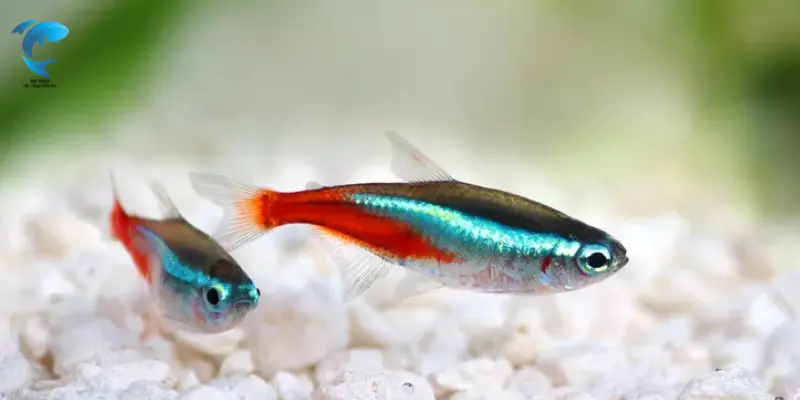
However, finding the best aquarium fish for beginners requires more than picking the most popular species. You must consider factors such as tank size, compatibility, maintenance requirements, and the Fish’s temperament. Choosing beginner-friendly species that are adaptable to your specific tank conditions is essential.
2. Key Factors to Consider Before Choosing Fish
Tank Size Considerations
Fish need a specific amount of space to thrive. Here’s a breakdown of tank sizes and the types of Fish that work well in each:
- Small Tanks (5-10 gallons) are perfect for species like Guppies, Neon Tetras, and Betta Fish. These Fish are small and active but don’t require a vast space to feel comfortable.
- Medium Tanks (20-30 gallons) are ideal for species such as Plities, Corydoras Catfish, and Zebra Danios. These Fish enjoy a bit more room to swim and interact.
- Larger Tanks (50+ gallons): If you plan on keeping larger Fish, such as Angelfish or Goldfish, you’ll need a spacious tank with excellent filtration.
Water Parameters
Each fish species has its preferred water conditions. Here’s a quick guide:
- Temperature: Most tropical Fish prefer water temperatures between 75°F to 80°F. Cold-water Fish, such as Goldfish, thrive in cooler water (65°F to 72°F).
- pH Levels: Most freshwater fish do well in neutral pH levels (around 7.0). However, some species may prefer slightly acidic or alkaline water.
- Water Quality: Regularly test ammonia, nitrite, and nitrate levels to ensure clean and safe water for your Fish. Poor water quality is a common cause of stress and disease in Fish.
Fish Behavior and Compatibility
Some fish are more social than others and need to live in groups, while others prefer solitude. Here’s what to consider:
- Social Fish: Species like Neon Tetras, Zebra Danios, and Corydoras thrive in groups and should be kept in schools of at least 5-6 fish.
- Territorial or Solitary Fish: Fish like Betta Fish and Angelfish may become aggressive toward other Fish, especially in smaller tanks. It’s essential to choose compatible species for a peaceful aquarium.
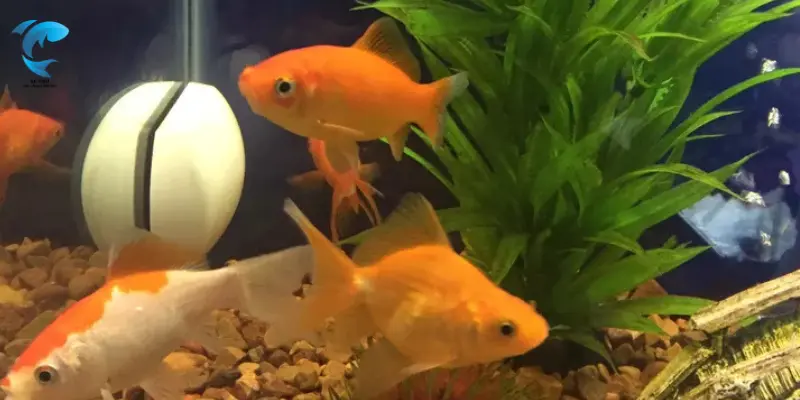
Feeding Requirements
Feeding your Fish the right amount of food is crucial to their health. Overfeeding can lead to poor water quality and obesity in Fish. Most beginner-friendly Fish do well on flake or pellet food, while some species, such as Mollies, may benefit from the occasional live food treat.
Common Beginner Mistakes
- Overfeeding: Fish don’t need to be fed multiple times a day. Stick to a feeding schedule and remove uneaten food to avoid water pollution.
- Overstocking: Too many Fish in a small tank can lead to poor water quality and stress. Be sure to research your tank’s stocking limits.
- Not Cycling the Tank: Before adding Fish to your aquarium, it’s important to cycle the tank to establish healthy bacteria that break down waste. This process usually takes 3-4 weeks.
3. Top 10 Easiest Freshwater Fish to Care For
Here’s a list of the easiest Fish to take care of based on factors like hardiness, temperament, and compatibility with other Fish:
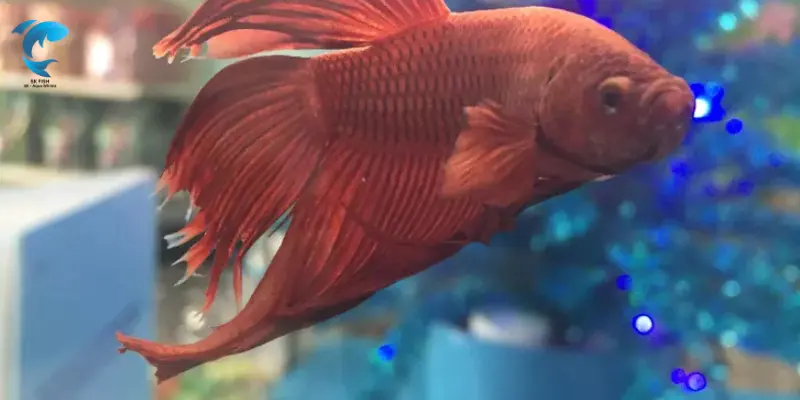
3.1 Guppies (Poecilia reticulata)
- Care Level: Easy
- Tank Size: 5 gallons or more
- Temperament: Peaceful, livebearers
- Maintenance Needs: Low, hardy, and easy to breed
- Tankmates: Best with peaceful species like Neon Tetras or Corydoras Catfish
3.2 Neon Tetras (Paracheirodon innesi)
- Care Level: Easy to moderate
- Tank Size: 10-20 gallons
- Temperament: Peaceful schooling
- Maintenance Needs: Low, requires well-planted tanks
- Tankmates: Best with small, peaceful Fish
3.3 Betta Fish (Betta splendens)
- Care Level: Moderate
- Tank Size: 5 gallons or more
- Temperament: Territorial, males should not be kept with other males
- Maintenance Needs: Low, simple to feed
- Tankmates: Avoid fin-nipping species
3.4 Corydoras Catfish
- Care Level: Easy
- Tank Size: 10-20 gallons
- Temperament: Peaceful bottom-dwellers
- Maintenance Needs: Low, helps keep the tank clean
- Tankmates: Ideal in groups with other peaceful species
3.5 Zebra Danios (Danio rerio)
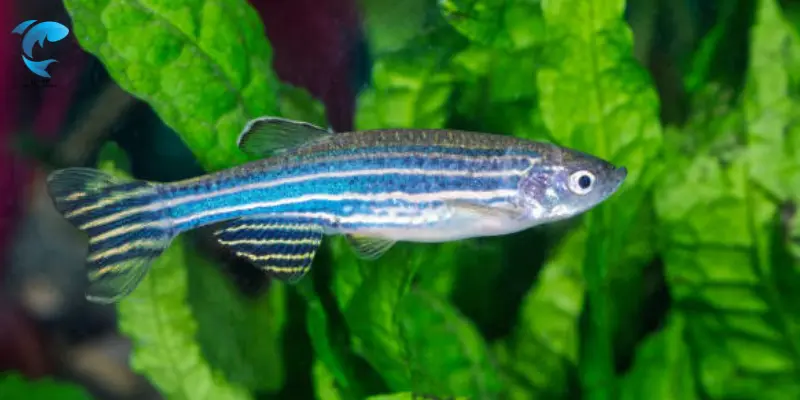
- Care Level: Easy
- Tank Size: 10-20 gallons
- Temperament: Peaceful, active swimmers
- Maintenance Needs: Low, hardy in a wide range of conditions
- Tankmates: Compatible with many peaceful species
3.6 Platies (Xiphophorus maculates)
- Care Level: Easy
- Tank Size: 10 gallons or more
- Temperament: Peaceful, livebearers
- Maintenance Needs: Low
- Tankmates: Good with most community fish
3.7 Mollies (Poecilia sphenops)
- Care Level: Easy
- Tank Size: 10 gallons or more
- Temperament: Peaceful
- Maintenance Needs: Moderate, prefer slightly brackish water
- Tankmates: Peaceful, avoid aggressive species
3.8 Swordtails (Xiphophorus hellerii)
- Care Level: Easy to moderate
- Tank Size: 20 gallons or more
- Temperament: Peaceful, active
- Maintenance Needs: Low
- Tankmates: Compatible with peaceful species
3.9 Cherry Shrimp (Neocaridina davidi)
- Care Level: Easy
- Tank Size: 5 gallons or more
- Temperament: Peaceful scavengers
- Maintenance Needs: Low, great for algae control
- Tankmates: Ideal with non-aggressive species
3.10 Angelfish (Pterophyllum scalare)
- Care Level: Moderate
- Tank Size: 20 gallons or more
- Temperament: Peaceful to semi-aggressive
- Maintenance Needs: Moderate
- Tankmates: Avoid small Fish; excellent with larger community species
4. Fish Care by Tank Size
Choosing the right tank size for your Fish is crucial to their well-being. Here’s a breakdown of how to care for your Fish by tank size:
Small Tanks (5-10 gallons)
- Best Species: Guppies, Neon Tetras, Cherry Shrimp
- Care Tips: Regular water changes, appropriate filtration, and a gentle lighting setup are key.
Medium Tanks (10-30 gallons)
- Best Species: Betta Fish, Corydoras, Platies
- Care Tips: Proper filtration, substrate choice, and keeping compatible species are essential for success.
Large Tanks (50+ gallons)
- Best Species: Angelfish, Goldfish, Gouramis
- Care Tips: Advanced filtration and maintaining water quality are vital in larger tanks.
5. Aquarium Setup for Beginner Fish
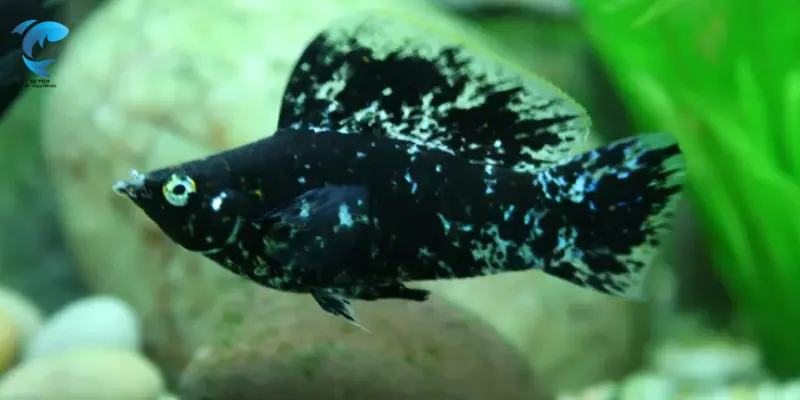
Setting up your tank correctly is crucial for ensuring your Fish thrive. Consider the following:
- Substrate and Decorations: To help maintain water quality, use natural materials like gravel or sand and decorate with live plants.
- Filtration and Heating: If keeping tropical species, ensure you have an appropriate filter based on the tank size and a heater.
- Lighting: Set up lighting that mimics the natural day-night cycle for your Fish.
6. Fish Compatibility Chart
Here’s a quick compatibility chart for common beginner fish:
| Fish Species | Tankmates | Compatibility |
| Guppies | Tetras, Corydoras | Excellent |
| Neon Tetras | Guppies, Platies, Zebra Danios | Excellent |
| Betta Fish | None (Unless with Specific speices | LowX |
| Corydoras | Most Peaceful Fish | Excellent |
| Platies | Most Community Fish | Excellent |
7. Troubleshooting Common Issues with Beginner Fish
Water Quality Problems
Cloudy water, fish stress, and frequent illness are signs of poor water quality. Regular water testing and maintenance can help avoid these issues.
Fish Disease and Treatment
Common diseases like Ich and Fin Rot can be treated with aquarium salt or special medications. To prevent the spread of diseases, new Fish should always be quarantined before being added.
Stress and Aggression
Ensure your Fish are not overcrowded and are compatible with their tankmates. Signs of stress include rapid breathing and hiding.
8. Conclusion
Choosing the easiest Fish to care for doesn’t have to be complicated. With the proper knowledge and care, you can enjoy a beautiful aquarium that requires minimal maintenance. Whether you’re looking for low-maintenance Fish, good aquarium starter fish, or easy Fish to keep alive, this guide has provided you with all the information needed to make an informed decision.
For those looking for a unique twist to their summer meals, summer fish recipes can add a flavorful and healthy option to your diet. The right Fish can bring a fresh, satisfying meal, whether grilling or baking.
By following the tips in this guide, you’ll find the best Fish for beginners and gain the knowledge needed to keep your aquarium flourishing for years.
FAQ: Easiest Fish to Take Care Of
For first-time aquarium owners, it’s essential to choose Fish that are hardy, easy to care for, and require minimal maintenance. Some of the best Fish for beginners include Guppies, Neon Tetras, Betta Fish, and Corydoras Catfish. These species are known for their resilience and can thrive in various water conditions. They also tend to be peaceful and compatible with other non-aggressive species. However, research the specific needs of each species to ensure a good fit for your tank.
Feeding your Fish correctly is crucial for their health. Overfeeding can cause water quality issues, so it’s best to feed your Fish once or twice a day, offering only as much food as they can consume in a few minutes. Guppies, Neon Tetras, and other small species typically do well with high-quality flakes or pellets. Some fish may also enjoy the occasional live or frozen food, but this should not be a daily part of their diet. Permanently remove any uneaten food to prevent it from polluting the tank.
While most fish benefit from a filter to maintain clean water, a few species can tolerate less filtration. However, it’s important to note that even low-maintenance Fish, like Betta Fish, will still thrive better with a small filter to ensure clean water. Cherry Shrimp are also known to do well in small, unfiltered tanks but require regular water changes to maintain a healthy environment. Remember that not using a filter will require frequent water changes to keep toxins like ammonia and nitrates in check.
Yes, many easy Fish for beginners can live comfortably in small tanks, but choosing the right species for the size of your aquarium is essential. Fish like Betta Fish, Guppies, and Neon Tetras do well in tanks ranging from 5 to 20 gallons. However, larger fish or species that need a lot of swimming space should be kept in bigger tanks. Overcrowding a small tank can lead to poor water quality and stressed Fish, so follow proper stocking guidelines and invest in good filtration.
Stress in Fish can lead to illness and even death if not addressed promptly. Common signs of stress include rapid breathing, lack of appetite, hiding frequently, and discoloration. Betta Fish, for example, may show stress by clamping their fins or becoming lethargic. Aggression between Fish, especially in species like Betta Fish, can also indicate stress. Environmental factors such as poor water quality, inappropriate tankmates, or inadequate tank size can all contribute to fish stress. Regular water changes, proper tank setup, and observing your Fish’s behavior can help you spot and resolve stress early.

SK Fish is your trusted source for practical fish care tips and delicious seafood recipes. Our team is dedicated to providing reliable, well-researched content for fishing enthusiasts and home cooks alike.

- Be Respectful
- Stay Relevant
- Stay Positive
- True Feedback
- Encourage Discussion
- Avoid Spamming
- No Fake News
- Don't Copy-Paste
- No Personal Attacks



- Be Respectful
- Stay Relevant
- Stay Positive
- True Feedback
- Encourage Discussion
- Avoid Spamming
- No Fake News
- Don't Copy-Paste
- No Personal Attacks





